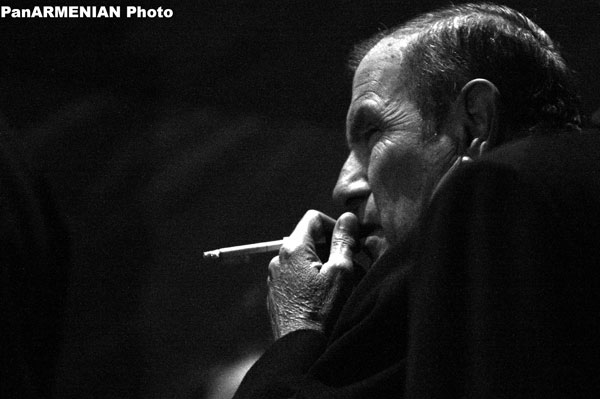In the most intense period of military operations, in 1992-93, Armenia’s opposition members were demanding the resignation of President Levon Ter-Petrosyan and were burning his effigy in front of the president’s residence.
Perhaps, it was the memory of the complexity of having a second domestic political front inside the country that forced Levon Ter-Petrosyan to publicly remind in his interview with iLur.am on April 11 that in the event of an external threat, “the conflicts are temporarily put aside and the efforts of all healthy political and social forces are directed at the establishment of national unity and jointly resisting the danger.” He also added, “Now, it is not the time for accusing the authorities of errors and omissions and demanding accountability from them.” Levon Ter-Petrosyan announced, “Serzh Sargsyan should feel himself strong at the negotiation table, having the support of his people.”
His position as such was criticized by pro-Kocharyan forces.
However, it is more remarkable that who were welcoming involved representatives of the forces who were demanding the resignation of the commander-in-chief during the war in 1992. It is specifically about the RPA and ARF.
Read also
Recently, a video appeared on the Internet telling about the meeting of resignation-demanding alliance formed forces and Levon Ter-Petrosyan. And even in much a poor quality video, you can hear that the meeting is held under the rally going on in front of the presidential residency, with chanting “Levon, leave!”
However, let us remind what situation we were having in 1992. In Wikipedia, it is described as a third phase of Artsakh liberation war: “June 12, 1992 – January 20, 1993 started with the large-scale attacks of the enemy in the directions of Askeran, Shahumyan, Martakert, Martuni and Hadrut regions of the Artsakh Republic and ended with the suspension of the attack of the enemy in the main scene Martakert battlefront of hostilities, as well as with the establishment of the overall balance of forces in the conflict zone.”
And here, along with the “large-scale attacks of the enemy”, on behalf of the Alliance, with the demand on the resignation, the meeting was attended by ARF representative Bagrat Sadoyan, Vardan Khachatryan (representative of the then Armenia’s Christian Democratic Union, now a member of the RPA party and the RA President’s advisor after being dismissed from the office of the Minister of Finance and Economy), Vigen Khachatryan (representative of the then Armenia’s liberal Democratic party, who also says that the ADL does not demand Ter-Petrosyan’s resignation), Simon Shahazizyan (RPA representative), Hayk Babukhanyan (CRU representative, now also a deputy of RPA faction), and Arshak Sadoyan (representative of the then National Democratic party, now Chairman of NDU party and a member of Public Council formed by RA President).
Levon Ter-Petrosyan refusing voluntarily to submit a resignation by their demand suggests initiating an extraordinary session, which will discuss the issue of organizing a nation-wide referendum with expressing a lack of confidence for the President of Armenia. He also agrees to the proposal of the RPA representative, considering it acceptable to include the issue of liquidation of the president’s position on the agenda. “I think that this is the only way even if you are coming to power, the best way for you would be to come to power legally, – says the first president of Armenia, – Achieving the power illegally always and ultimately affects the nation and personally the people who come to power in the same way. This is a universal law.”
Two of the participants in the meeting have passed away. As for the remaining, it would be interesting to retrospectively know their or their represented political forces’ estimates whether now, too, they consider their actions committed in those times and conditions, as well as the proposed demands right. This, perhaps, would be educative and interesting to hear from the people who are now trying to open a second front inside the country under the resumed hostilities and decisive negotiations.
Anna ISRAELYAN





















































